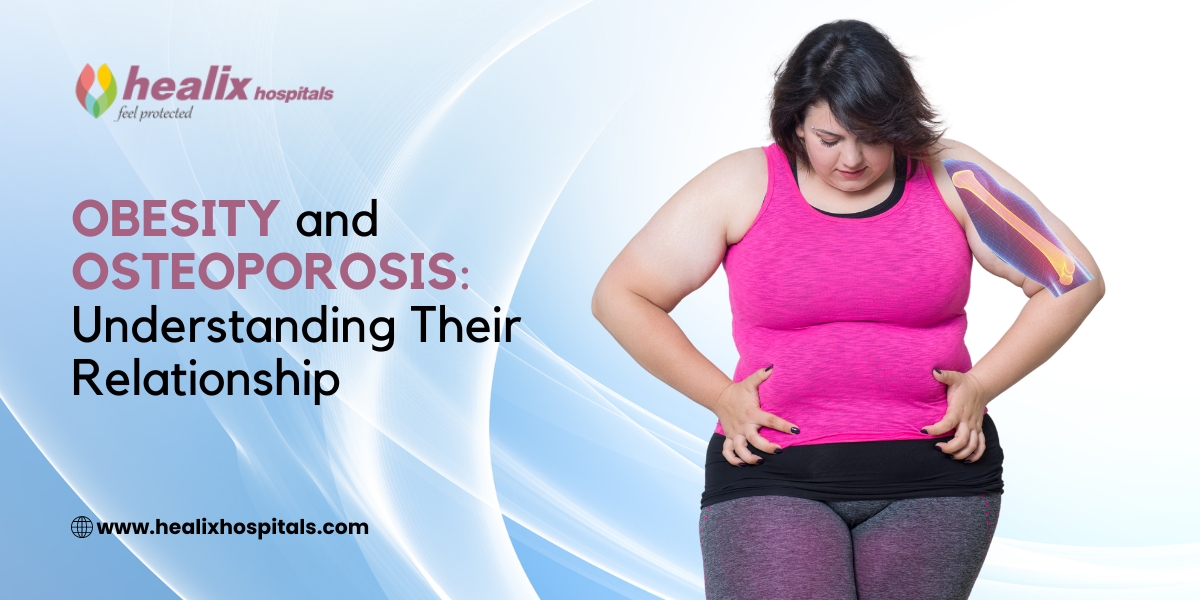

Obesity and osteoporosis are two prevalent health conditions that affect millions of people worldwide. Obesity is a condition characterized by excessive body fat accumulation, while osteoporosis is a condition in which the bones become weak and brittle, increasing the risk of fractures. Although they may seem unrelated, recent research has shown a link between obesity and osteoporosis.
Traditionally, obesity has been viewed as a protective factor against osteoporosis due to the higher bone mineral density (BMD) observed in overweight individuals. However, recent studies have revealed that obesity may not always confer protection against osteoporosis, and in fact, obesity may increase the risk of bone fractures in certain populations. The relationship between obesity and osteoporosis is complex and multifactorial, involving various physiological, metabolic, and lifestyle factors.
In this blog, we will explore the relationship between obesity and osteoporosis, examining the underlying mechanisms and risk factors that contribute to their association. We will also discuss the implications of this relationship for clinical practice, highlighting the importance of prevention and management strategies for both conditions.
Obesity is a complex condition that is caused by a combination of genetic, environmental, and lifestyle factors.
Five major causes of obesity:
Genetics: Genetic factors play a significant role in the development of obesity. Several genes have been identified that are associated with obesity, including genes that regulate appetite, metabolism, and fat storage.
Overeating: Consuming more calories than the body needs can lead to weight gain and obesity. Overeating can be caused by a variety of factors, including emotional eating, boredom, or simply consuming large portions of calorie-dense foods.
Sedentary lifestyle: Lack of physical activity is another major cause of obesity. Sedentary jobs, lack of access to recreational facilities, and a general decline in physical activity levels are all contributing factors.
Environmental factors: Environmental factors such as access to unhealthy food choices, marketing of high-calorie foods, and lack of access to healthy food options can also contribute to obesity.
Medical conditions and medications: Certain medical conditions such as hypothyroidism, Cushing's syndrome, and polycystic ovary syndrome (PCOS) can contribute to weight gain and obesity. Certain medications, such as corticosteroids and some antidepressants, can also cause weight gain.
Osteoporosis and obesity have some similarities in their causes. This condition occurs when the bones become weak and brittle, increasing the risk of fractures.
Five crucial causes of osteoporosis are:
Age: As people age, their bones become less dense and weaker, increasing the risk of osteoporosis.
Gender: Women are at a higher risk of developing osteoporosis than men due to the hormonal changes that occur during menopause. Estrogen helps protect bones, and as women's estrogen levels decline during menopause, their risk of osteoporosis increases.
Poor nutrition: A diet low in calcium and vitamin D can contribute to the development of osteoporosis. Calcium and vitamin D are essential nutrients for bone health and are needed to maintain strong bones.
Sedentary lifestyle: Lack of physical activity can contribute to the development of osteoporosis. Weight-bearing exercises such as walking, jogging, or resistance training help to build bone density.
Certain medical conditions and medications: Certain medical conditions such as hyperthyroidism, Cushing's syndrome, and inflammatory bowel disease can contribute to osteoporosis. Certain medications, such as long-term use of corticosteroids, anticonvulsants, and some cancer treatments, can also increase the risk of osteoporosis.
By making these lifestyle changes, individuals can reduce their risk of developing obesity and osteoporosis and improve their overall health and quality of life.
Here are three lifestyle changes that can help to avoid both obesity and osteoporosis:
Regular physical activity: Engaging in regular physical activity can help to maintain a healthy weight, build muscle strength, and promote bone density. Weight-bearing exercises such as walking, jogging, or resistance training can be particularly effective in reducing the risk of osteoporosis.
Healthy diet: A healthy diet that includes a variety of nutrient-dense foods such as fruits, vegetables, whole grains, lean proteins, and low-fat dairy products can help to maintain a healthy weight and promote bone health. Adequate intake of calcium and vitamin D is essential for bone health, so incorporating foods such as dairy, leafy greens, and fortified cereals can help to prevent osteoporosis.
Avoidance of smoking and excessive alcohol consumption: Smoking and excessive alcohol consumption can both increase the risk of both obesity and osteoporosis. Quitting smoking and limiting alcohol consumption can help to reduce the risk of these conditions and improve overall health.
In conclusion, there is a complex relationship between obesity and osteoporosis. Obesity is associated with an increased risk of osteoporosis due to a combination of factors such as low physical activity levels, poor nutrition, and certain medical conditions. On the other hand, osteoporosis can also lead to obesity due to decreased mobility and an increased risk of falls and fractures.
To prevent and manage both conditions, a comprehensive approach is necessary that includes lifestyle changes such as regular physical activity, a healthy diet, and avoidance of smoking and excessive alcohol consumption. Treatment plans may also include medications or surgery depending on the severity of the condition.
It is important to recognize the link between obesity and osteoporosis and take proactive steps to prevent or manage these conditions. A healthy lifestyle that includes regular physical activity and good nutrition can help to reduce the risk of both obesity and osteoporosis, leading to better overall health and quality of life.
Also Read: Urinating More Often in The Night? Learn Its Causes - Healix Hospitals